What you eat plays a massive role when it comes to crushing workouts and staying energized. If you’re following a low carb vegetarian diet, finding the right balance of nutrients can feel tricky at first—but don’t worry! This guide is packed with tips and strategies to help you fuel your workouts and feel your best, all while staying true to your plant-based lifestyle
Understanding Low-Carb Vegetarian Diets
What is a Low-Carb Vegetarian Diet?
A low carb vegetarian diet combines the principles of limiting carbohydrates while focusing on plant-based foods. This means cutting down on starchy foods (like bread, pasta, and potatoes) and loading on nutrient-rich vegetables, healthy fats, and plant-based proteins. (1)
Benefits of a Low-Carb Vegetarian Diet:
- Supports weight management: Reduced carb intake may help with fat loss.
- Improves blood sugar control: Ideal for those managing diabetes or insulin resistance.
- Boosts mental clarity and energy: Perfect for maintaining focus during workouts.
The Role of Carbohydrates in Exercise
Carbohydrates are central to fueling your body, especially during physical activity. Even when following a low carb vegetarian diet, it’s essential to understand the relationship between carbs and exercise to maintain energy levels, endurance, and overall performance. (2)
How Carbs Fuel Your Body During Exercise
Carbohydrates are the body’s preferred source of energy. When you eat carbs, they are broken down into glucose and either used immediately for energy or stored as glycogen in your muscles and liver. During exercise, your body taps into these glycogen stores to provide quick bursts of energy. This is especially true for high-intensity workouts like weightlifting, sprinting, or interval training.
- Low-Intensity Workouts: Your body may rely more on fat for energy during low-intensity activities like walking or yoga.
- Moderate to High-Intensity Workouts: Activities like running or HIIT workouts primarily use glycogen as the energy source.
If your glycogen stores are depleted, you may experience fatigue or “hitting the wall,” which can significantly impact your performance and recovery.
Carbohydrates and Exercise Performance
For those on a low carb vegetarian diet, understanding how carbs impact your performance can help you make strategic dietary choices.
- Quick Energy for High-Intensity Workouts
Carbs are essential for exercises that require short bursts of energy, such as sprinting or lifting heavy weights. If you’ve ever felt sluggish or struggled to push through a tough workout, it could be a sign your glycogen stores are running low. - Sustained Energy for Endurance Activities
For longer activities like cycling, swimming, or running, glycogen provides the steady energy you need to go the distance. When glycogen stores are depleted, your body turns to fat, which is a slower source of fuel, potentially reducing your speed and stamina. - Recovery and Muscle Repair
After exercise, consuming carbs helps replenish glycogen stores, allowing your muscles to recover faster. Combining carbs with protein in your post-workout meal can enhance muscle repair and reduce soreness.
Balancing Carbs on a Low Carb Vegetarian Diet
The key to a low carb vegetarian diet is not cutting carbs completely but rather choosing quality sources and consuming them strategically. Here are some tips:
- Focus on Non-Starchy Vegetables: Leafy greens, broccoli, zucchini, and cauliflower are excellent low-carb, nutrient-dense options.
- Incorporate Small Amounts of Fruits: Berries, such as strawberries, blueberries, and raspberries, are low in sugar and provide antioxidants to support recovery.
- Time Your Carb Intake:
- Before Workouts: Eat a small serving of carbs 30–60 minutes before exercise to boost energy levels.
- After Workouts: Include moderate carbs post-exercise to replenish glycogen and support recovery.
The Impact of Too Few Carbs
Going too low on carbs can negatively affect your exercise performance and overall well-being. Here’s how:
- Reduced Energy Levels: Without sufficient glycogen, your body struggles to sustain high-intensity efforts.
- Decreased Endurance: Over time, inadequate carb intake can reduce stamina, making it harder to complete long or intense workouts.
- Impaired Recovery: Insufficient carbs can slow down muscle recovery and increase soreness after exercise.
- Mental Fog: The brain also uses glucose as its primary energy source, so a lack of carbs can impact focus and motivation during workouts.
Best Carb Sources for Low Carb Vegetarians
Even on a low carb vegetarian diet, there are plenty of ways to incorporate nutrient-rich carbs without overdoing sugar or starch.
- Vegetables: Bell peppers, asparagus, spinach, and kale are excellent options that are low in carbs but rich in fiber and vitamins.
- Legumes (in Moderation): Lentils, black beans, and chickpeas provide both carbs and protein but should be consumed in smaller portions.
- Fruits: Opt for low-glycemic fruits like berries, kiwi, or grapefruit for a quick carb boost.
- Nuts and Seeds: While higher in fat, nuts like almonds and seeds like chia offer a small amount of carbs and can be part of a balanced snack.
- Whole Grains (if included): Small portions of quinoa or oats can provide sustainable energy for vegetarians who aren’t strictly keto.
How to Personalize Carb Intake for Your Workouts
Carb needs vary depending on the individual and the type of exercise. Here’s how to determine the right amount for you:
- Assess Your Activity Level
- Light Activity (Walking, Yoga): Aim for 20–50 grams of carbs per day.
- Moderate Activity (Jogging, Weightlifting): 50–100 grams of carbs may suffice.
- High-Intensity or Endurance Activity (Cycling, Running): You might need 100–150 grams of carbs daily, especially on workout days.
- Experiment with Timing
If you’re new to a low carb vegetarian diet, try adjusting the timing of your carb intake to see what works best for your energy levels. Many people find it helpful to eat their carbs around their workouts. - Listen to Your Body
If you’re feeling fatigued, struggling with performance, or finding it hard to recover, consider increasing your carb intake slightly. Pay attention to how your body responds and adjust accordingly.
Top Protein Sources for Vegetarians
Protein is the foundation for building and repairing muscles. It’s especially important when you’re cutting back on carbs to ensure you’re meeting your energy needs. (3)
Best High-Protein, Low-Carb Vegetarian Foods:
- Tofu and Tempeh: These soy-based staples are loaded with protein and versatile for any meal.
- Seitan: Often called “wheat meat,” it’s packed with protein and low in carbs.
- Greek Yogurt: Opt for unsweetened varieties to keep carbs in check.
- Legumes (in moderation): Chickpeas and lentils are great, but watch portion sizes to stay low-carb.
- Nuts and Seeds: Almonds, chia seeds, and hemp seeds are excellent plant-based options.
Healthy Fats: An Essential Component
When following a low carb vegetarian diet, fats become an indispensable part of your nutritional strategy. With fewer carbs to fuel your body, healthy fats step in as a vital energy source while supporting overall health. They play a critical role in hormone production, nutrient absorption, and maintaining satiety, all of which are essential for sustaining an active lifestyle. (4)
Why Are Fats Important?
Fats often get a bad reputation, but they’re crucial for optimal health—especially on a low carb vegetarian diet. Here’s why they matter:
- Primary Energy Source:
On a low-carb diet, fats become your body’s primary fuel, providing sustained energy for daily activities and workouts. - Supports Hormone Production:
Fats are essential for creating hormones like testosterone and estrogen, which are critical for muscle repair and overall well-being. - Enhances Nutrient Absorption:
Vitamins A, D, E, and K are fat-soluble, meaning they need dietary fat to be properly absorbed and utilized by your body. - Promotes Satiety:
Fats are more calorie-dense than proteins or carbs, helping you feel fuller for longer and reducing the urge to snack on high-carb foods. - Anti-Inflammatory Properties:
Healthy fats like omega-3s help reduce inflammation, which is especially beneficial for recovery after intense workouts.
Best Sources of Healthy Fats for Vegetarians
A low carb vegetarian diet offers plenty of plant-based sources of healthy fats that are both nutrient-dense and delicious. Here are some of the top options:
- Avocados:
- Packed with monounsaturated fats, avocados are a versatile addition to salads, smoothies, and toast.
- Rich in potassium, they help balance electrolytes, especially after a sweaty workout.
- Nuts:
- Almonds, walnuts, and macadamia nuts are excellent sources of healthy fats, protein, and fiber.
- Walnuts, in particular, are high in omega-3 fatty acids, which reduce inflammation.
- Seeds:
- Chia seeds, flaxseeds, and hemp seeds are tiny powerhouses of nutrients. They’re loaded with omega-3s, fiber, and protein.
- Sprinkle them on oatmeal, or salads, or blend them into your smoothies.
- Coconut Products:
- Coconut oil, milk, and cream are rich in medium-chain triglycerides (MCTs), which are easily converted into energy.
- Perfect for cooking or adding creaminess to low-carb recipes.
- Olive Oil:
- A staple in Mediterranean diets, olive oil is loaded with monounsaturated fats and antioxidants.
- Use it for salad dressings or drizzling over roasted veggies.
- Nut Butters:
- Almond butter, cashew butter, and peanut butter are convenient ways to add healthy fats to meals.
- Be mindful of portion sizes to avoid consuming too many calories.
- Dark Chocolate:
- Look for chocolate with at least 70% cocoa to enjoy the benefits of healthy fats, antioxidants, and a satisfying treat.
How Healthy Fats Support Workouts
When it comes to fueling your workouts, healthy fats have unique benefits that complement the energy provided by proteins and carbs.
- Sustained Energy:
Unlike carbs, which provide quick bursts of energy, fats offer a slow and steady energy release. This makes them ideal for endurance activities like cycling, hiking, or long-distance running. - Improved Recovery:
Fats help reduce inflammation in the muscles and joints, speeding up recovery and minimizing soreness after intense workouts. - Enhanced Fat Burning:
When your body adapts to a low carb vegetarian diet, it becomes more efficient at burning fat for energy, which can improve metabolic flexibility.
Incorporating Healthy Fats into a Low Carb Vegetarian Diet
Adding healthy fats to your meals is easier than you might think. Here’s how to make the most of these nutrient-packed foods:
- Start Your Day with Fats:
- Have an avocado with scrambled tofu or drizzle olive oil over sautéed veggies for breakfast.
- Blend chia seeds into your morning smoothie for a creamy, nutrient-rich start.
- Snack Smart:
- Keep a handful of mixed nuts or a small serving of nut butter handy for a quick energy boost.
- Pair celery sticks with almond butter for a satisfying low-carb snack.
- Upgrade Your Cooking Oils:
- Use coconut oil or avocado oil for cooking, as they have high smoke points and retain their nutritional benefits when heated.
- Use coconut oil or avocado oil for cooking, as they have high smoke points and retain their nutritional benefits when heated.
- Boost Salads and Soups:
- Top salads with toasted seeds or drizzle them with olive oil and balsamic vinegar.
- Add coconut milk to soups and stews for extra creaminess.
- Make Low-Carb Desserts:
- Create fat bombs using coconut oil, dark chocolate, and nut butter for a guilt-free, low-carb treat.
Use avocado to make a creamy, low-sugar chocolate mousse.
- Create fat bombs using coconut oil, dark chocolate, and nut butter for a guilt-free, low-carb treat.
Meal Planning Strategies
One of the most important aspects of sticking to a low carb vegetarian diet is having a solid meal plan. Without one, it’s easy to fall into the trap of relying on high-carb processed foods or not getting enough nutrients. Effective meal planning not only saves time but also ensures you’re fueling your body with the right balance of proteins, fats, and low-carb vegetables to keep energy levels high and workouts on point. (5)
Why Is Meal Planning Essential?
Meal planning sets you up for success by taking the guesswork out of eating. Here’s why it’s so crucial:
- Ensures Nutritional Balance:
Planning your meals helps you meet your daily needs for protein, healthy fats, and fiber while keeping carbs low. - Saves Time and Money:
By preparing ingredients and meals in advance, you avoid last-minute takeout or grabbing expensive convenience foods. - Prevents Diet Fatigue:
Rotating planned meals and snacks helps you stay consistent without getting bored. - Reduces Stress:
When you know what you’re eating for the week, there’s no daily scramble to figure out meals.
How to Structure Your Meal Plan
When creating a meal plan for a low carb vegetarian diet, it’s important to focus on foods that provide energy, support muscle recovery, and keep you satisfied throughout the day. Use this framework to structure your plan:
- Prioritize Protein:
Include high-protein, plant-based foods like tofu, tempeh, seitan, and legumes in your meals. Protein should be the star of every plate to help maintain muscle mass and fuel workouts. - Incorporate Healthy Fats:
Add sources of healthy fats like avocados, nuts, seeds, and olive oil to provide sustained energy. These fats are essential for hormone health and recovery. - Focus on Non-Starchy Vegetables:
Make vegetables like spinach, kale, zucchini, and broccoli the foundation of your meals. They’re low in carbs and packed with fiber, vitamins, and minerals. - Plan for Snacks:
Incorporate easy-to-grab options like mixed nuts, roasted chickpeas, or celery sticks with almond butter to keep hunger at bay between meals.
Meal Prep Tips for Success
Meal prep is a game-changer for anyone following a low carb vegetarian diet. It saves time during busy weekdays and ensures you always have healthy options on hand.
How to Meal Prep Like a Pro
- Batch Cook Proteins:
- Roast or pan-fry large batches of tofu, tempeh, or seitan at the start of the week. Store them in airtight containers for easy access.
- Use different marinades (like soy-ginger or lemon-tahini) to add variety to your proteins.
- Pre-Cut Vegetables:
- Chop veggies like bell peppers, zucchini, and broccoli and store them in meal-sized portions. This makes cooking quick and convenient.
- Chop veggies like bell peppers, zucchini, and broccoli and store them in meal-sized portions. This makes cooking quick and convenient.
- Cook in Bulk:
- Make large portions of low-carb dishes like cauliflower fried rice or zucchini noodles and divide them into individual servings for the week.
- Make large portions of low-carb dishes like cauliflower fried rice or zucchini noodles and divide them into individual servings for the week.
- Portion Out Snacks:
- Pre-portion nuts, seeds, and trail mix into small bags or containers for easy snacking.
- Pre-portion nuts, seeds, and trail mix into small bags or containers for easy snacking.
- Store Properly:
- Use clear, stackable containers to keep your fridge organized and make your meals easily visible.
Label each container with the day and meal to simplify your week.
- Use clear, stackable containers to keep your fridge organized and make your meals easily visible.
Sample Weekly Low-Carb Vegetarian Meal Plan
Here’s a sample meal plan to get you started. This plan is designed to provide a balance of protein, fats, and non-starchy vegetables, all while keeping carbs low. (6)
Monday:
- Breakfast: Spinach and mushroom tofu scramble with avocado slices.
- Lunch: Kale salad with grilled tempeh, walnuts, and olive oil vinaigrette.
- Dinner: Cauliflower rice stir-fry with coconut milk, broccoli, and tofu.
- Snack: Celery sticks with almond butter.
Tuesday:
- Breakfast: Chia seed pudding made with unsweetened almond milk, topped with flaxseeds and raspberries.
- Lunch: Zucchini noodles with marinara sauce and roasted eggplant.
- Dinner: Grilled portobello mushrooms with a side of sautéed spinach in olive oil.
- Snack: A handful of roasted almonds.
Wednesday:
- Breakfast: Smoothie with unsweetened almond milk, spinach, avocado, chia seeds, and protein powder.
- Lunch: Tempeh lettuce wraps with shredded carrots and peanut sauce.
- Dinner: Eggplant curry with coconut milk and a side of steamed kale.
- Snack: Roasted chickpeas.
Thursday:
- Breakfast: Scrambled eggs (or tofu) with sautéed zucchini and avocado slices.
- Lunch: Greek salad with feta cheese, olives, cucumbers, and olive oil dressing.
- Dinner: Grilled seitan with a side of cauliflower mash and roasted asparagus.
- Snack: A small handful of macadamia nuts.
Friday:
- Breakfast: Almond flour pancakes topped with coconut cream and blueberries.
- Lunch: Spinach and arugula salad with roasted tofu, sunflower seeds, and tahini dressing.
- Dinner: Stuffed bell peppers filled with cauliflower rice and mushrooms.
- Snack: Dark chocolate squares with walnuts.
Tips for Sticking to Your Meal Plan
Even with the best intentions, life can sometimes derail your meal planning efforts. Use these tips to stay consistent and avoid falling off track:
- Make a Grocery List:
Write down all the ingredients you need for the week and stick to your list while shopping. This prevents impulse buys and ensures you have everything you need. - Cook Extra Portions:
Double or triple recipes to ensure you have leftovers for lunches or emergencies. - Use Freezer-Friendly Meals:
Prepare meals like soups, stews, or casseroles that freeze well for those days when you’re short on time. - Keep Quick Options on Hand:
Stock up on easy-to-prepare foods like pre-washed salad greens, frozen vegetables, and canned legumes (if they fit your carb goals). - Be Flexible:
If something comes up and you need to adjust your plan, don’t stress. Just pick a healthy option and move forward.
Pre-Workout Nutrition Tips
When it comes to maximizing your performance and getting the most out of your workouts, what you eat before hitting the gym or starting your routine matters. Proper pre-workout nutrition ensures your body has the energy to power through intense exercises, supports endurance, and prevents fatigue. For those following a low carb vegetarian diet, it’s crucial to strike the right balance between fueling your body and staying aligned with your dietary goals.
Why Pre-Workout Nutrition is Important
The food you consume before exercise acts as fuel for your body, just like gasoline for a car. Here’s why it matters:
- Provides Energy:
- A well-timed pre-workout meal or snack helps top up your energy reserves, preventing mid-workout crashes.
- Carbs, while limited on a low-carb diet, provide quick energy, while fats and proteins contribute to sustained performance.
- Boosts Performance:
- With the right nutrients in your system, your muscles perform better, allowing you to lift heavier, run faster, or train harder.
- With the right nutrients in your system, your muscles perform better, allowing you to lift heavier, run faster, or train harder.
- Prevents Muscle Breakdown:
- Including protein before a workout supplies amino acids that protect muscle tissue from breaking down during intense activity.
- Including protein before a workout supplies amino acids that protect muscle tissue from breaking down during intense activity.
- Improves Recovery:
- Starting your workout with adequate fuel ensures your body is better prepared for recovery, reducing soreness and fatigue.
What to Eat Before a Workout on a Low Carb Vegetarian Diet
Your pre-workout meal should focus on foods that provide a combination of protein, healthy fats, and low-glycemic carbohydrates for sustained energy. Here are some of the best options:
- Protein-Rich Foods:
- Tofu or Tempeh: These are excellent plant-based sources of protein to support muscle function.
- Greek Yogurt (Unsweetened): Contains both protein and a small amount of carbs for quick energy.
- Healthy Fats:
- Avocado: Packed with monounsaturated fats that provide sustained energy.
- Nut Butter: A tablespoon of almond or peanut butter is a simple and effective pre-workout snack.
- Low-Glycemic Carbohydrates:
- Berries: Strawberries or blueberries offer a small carb boost without spiking blood sugar.
- Vegetables: Cucumber slices or celery sticks can be paired with a dip for a light pre-workout option.
- Hydration Boosters:
- Coconut Water: Provides natural electrolytes to keep you hydrated.
- Water: Staying hydrated is just as important as eating the right foods.
Timing Your Pre-Workout Meal
The timing of your pre-workout nutrition plays a big role in how well your body performs. Here’s how to approach it:
- Large Meals (2-3 Hours Before):
- If you’re eating a full meal, ensure it includes a mix of protein, fats, and a small amount of carbs. Give your body enough time to digest before exercising.
- Example: Grilled tempeh with a side of roasted zucchini and olive oil drizzle.
- Small Snacks (30-60 Minutes Before):
- For shorter notice, stick to lighter options that are easy to digest. This ensures your stomach isn’t too full while still providing energy.
- Example: A handful of almonds or a small serving of Greek yogurt with a few berries.
- Hydration Timing:
- To avoid dehydration, start hydrating 1-2 hours before your workout. Aim for 16-20 ounces of water.
Pre-Workout Snacks for Low Carb Vegetarians
If you’re looking for quick and easy pre-workout snack ideas, these options are packed with the right nutrients:
- Chia Pudding:
- Mix chia seeds with unsweetened almond milk and let it sit overnight. For extra flavor, add a few raspberries or a drizzle of almond butter.
- Mix chia seeds with unsweetened almond milk and let it sit overnight. For extra flavor, add a few raspberries or a drizzle of almond butter.
- Hard-Boiled Eggs with Avocado:
- For vegetarians who eat eggs, this combination provides protein and healthy fats to keep you energized.
- For vegetarians who eat eggs, this combination provides protein and healthy fats to keep you energized.
- Smoothie:
- Blend unsweetened almond milk, spinach, avocado, and a scoop of plant-based protein powder for a nutrient-rich drink.
- Blend unsweetened almond milk, spinach, avocado, and a scoop of plant-based protein powder for a nutrient-rich drink.
- Cucumber and Hummus:
- A refreshing, light snack that delivers a small amount of carbs and healthy fats.
- A refreshing, light snack that delivers a small amount of carbs and healthy fats.
- Nuts and Seeds:
- A handful of almonds, walnuts, or pumpkin seeds makes for a simple snack loaded with fats and protein.
Foods to Avoid Before a Workout
While there are plenty of foods that can fuel your performance, certain options are better left out of your pre-workout routine. Avoid these to prevent digestive discomfort or energy crashes:
- High-Fiber Foods:
- While fiber is important, too much before a workout can cause bloating or cramping. Examples include large servings of beans or cruciferous vegetables.
- While fiber is important, too much before a workout can cause bloating or cramping. Examples include large servings of beans or cruciferous vegetables.
- Sugary Snacks:
- Foods high in sugar can cause blood sugar spikes followed by crashes, leaving you feeling drained mid-workout.
- Foods high in sugar can cause blood sugar spikes followed by crashes, leaving you feeling drained mid-workout.
- Spicy Foods:
- Spices can upset your stomach and cause discomfort during intense physical activity.
- Spices can upset your stomach and cause discomfort during intense physical activity.
- Heavy Meals:
- Avoid eating large, greasy meals right before exercising. They take longer to digest and can make you feel sluggish.
Pre-Workout Hydration: The Forgotten Key
Proper hydration is just as important as what you eat before exercising. Even mild dehydration can negatively impact your strength, stamina, and overall performance.
- Drink Water Beforehand: Aim to drink at least 16-20 ounces of water 1-2 hours before your workout.
- Electrolytes: For longer or more intense workouts, consider adding a pinch of salt or drinking coconut water to maintain electrolyte balance.
How Pre-Workout Nutrition Supports Performance
Here’s how effective pre-workout nutrition directly impacts your fitness goals:
- Sustained Energy Levels:
- A balanced meal with protein, fats, and low-glycemic carbs ensures you don’t hit a wall halfway through your workout.
- A balanced meal with protein, fats, and low-glycemic carbs ensures you don’t hit a wall halfway through your workout.
- Better Focus and Endurance:
- Properly fueling your body helps you stay mentally sharp and physically strong, even during challenging sessions.
- Properly fueling your body helps you stay mentally sharp and physically strong, even during challenging sessions.
- Reduced Fatigue:
- Eating the right foods before exercise prevents early fatigue, allowing you to perform at your best.
- Eating the right foods before exercise prevents early fatigue, allowing you to perform at your best.
- Improved Recovery:
- A well-timed pre-workout snack provides your body with the nutrients it needs to improve post-workout recovery.
Post-Workout Recovery Nutrition
What you eat after a workout can significantly impact how your body recovers and adapts to exercise. Whether you’re lifting weights, running, or practicing yoga, your muscles need the right nutrients to repair, rebuild, and grow stronger. For those following a low carb vegetarian diet, post-workout nutrition is even more critical to ensure you’re meeting your energy and recovery needs without relying on high-carb options.
Why Post-Workout Nutrition is Important
After exercise, your body enters a recovery phase where it needs specific nutrients to heal and replenish. Here’s why post-workout nutrition matters:
- Replenishes Glycogen Stores:
- Exercise, especially high-intensity workouts, depletes glycogen (your body’s carbohydrate reserves). Replenishing glycogen helps restore energy levels and prepares you for your next workout.
- Exercise, especially high-intensity workouts, depletes glycogen (your body’s carbohydrate reserves). Replenishing glycogen helps restore energy levels and prepares you for your next workout.
- Supports Muscle Repair:
- During exercise, your muscles experience tiny tears. Consuming protein post-workout provides the amino acids needed to repair and rebuild them.
- During exercise, your muscles experience tiny tears. Consuming protein post-workout provides the amino acids needed to repair and rebuild them.
- Reduces Muscle Soreness:
- Proper recovery nutrition can reduce delayed-onset muscle soreness (DOMS), so you feel less achy after a tough session.
- Proper recovery nutrition can reduce delayed-onset muscle soreness (DOMS), so you feel less achy after a tough session.
- Enhances Overall Recovery:
- Eating the right nutrients post-workout accelerates recovery, ensuring your body bounces back faster for your next activity.
Key Components of Post-Workout Nutrition
To optimize recovery, your post-workout meal or snack should include a balance of the following macronutrients:
- Protein for Muscle Repair and Growth:
Protein is non-negotiable after a workout. It provides essential amino acids to rebuild muscle tissue and support recovery.- Target Amount: Aim for 15-30 grams of protein within 30-60 minutes after exercise.
- Healthy Fats for Recovery:
While carbs and protein get the spotlight, healthy fats play an important supporting role in post-workout nutrition. They help reduce inflammation and support hormonal health, which is vital for recovery. - Low-Glycemic Carbs to Replenish Energy:
On a low-carb vegetarian diet, you may limit carb intake, but including small portions of low-glycemic carbohydrates can help replenish glycogen stores without spiking blood sugar. - Hydration for Replenishment:
Exercise causes water and electrolyte loss through sweat. Rehydrating post-workout is essential to replace fluids and maintain optimal performance.
Best Post-Workout Foods for Low Carb Vegetarians
Here are some nutrient-dense foods that fit perfectly into a low carb vegetarian diet and support post-workout recovery:
- High-Protein Foods:
- Tofu or Tempeh: These plant-based proteins are versatile and rich in essential amino acids.
- Seitan: A great option for vegetarians who include gluten in their diet.
- Edamame: A light yet protein-packed snack option.
- Healthy Fats:
- Avocado: Pair it with veggies or use it as a creamy topping for your meal.
- Nuts and Seeds: Almonds, walnuts, chia seeds, and hemp seeds provide fats, protein, and antioxidants.
- Nut Butter: Spread almond or peanut butter on celery sticks or pair it with low-carb vegetables.
- Low-Glycemic Carbs:
- Leafy Greens: Spinach and kale are excellent choices for their fiber and nutrient content.
- Berries: Strawberries, blueberries, and raspberries offer a small carb boost and antioxidants for recovery.
- Cauliflower Rice or Zucchini Noodles: Use these as a base for protein-packed post-workout meals.
- Protein Smoothies:
- Blend unsweetened almond milk, a scoop of plant-based protein powder, spinach, avocado, and a few berries for a complete recovery shake.
- Blend unsweetened almond milk, a scoop of plant-based protein powder, spinach, avocado, and a few berries for a complete recovery shake.
- Fermented Foods:
- Foods like kimchi, sauerkraut, and miso can support gut health, which is essential for nutrient absorption during recovery.
Timing Matters: When to Eat Post-Workout
The timing of your post-workout meal can make a big difference in how effectively your body recovers.
- The Anabolic Window:
- The 30–60 minutes after a workout is often referred to as the “anabolic window,” during which your body is most efficient at absorbing nutrients for muscle repair and glycogen replenishment. Aim to eat your post-workout meal or snack during this time.
- The 30–60 minutes after a workout is often referred to as the “anabolic window,” during which your body is most efficient at absorbing nutrients for muscle repair and glycogen replenishment. Aim to eat your post-workout meal or snack during this time.
- Hydration Timing:
- Start rehydrating immediately after your workout. Water or a drink with electrolytes will help replace fluids lost during exercise.
- Start rehydrating immediately after your workout. Water or a drink with electrolytes will help replace fluids lost during exercise.
- Don’t Skip Your Meal:
- Even if you’re not hungry right after your workout, consuming something small, like a protein smoothie or a handful of nuts, is essential to kickstart recovery.
Post-Workout Snack Ideas
If you’re looking for quick and easy recovery snacks, here are some simple ideas that fit a low carb vegetarian diet:
- Tofu Veggie Bowl:
- Toss sautéed tofu with steamed broccoli, kale, and a tahini dressing for a protein-packed snack.
- Toss sautéed tofu with steamed broccoli, kale, and a tahini dressing for a protein-packed snack.
- Greek Yogurt Parfait:
- Use unsweetened Greek yogurt topped with chia seeds, a sprinkle of walnuts, and a few blueberries.
- Use unsweetened Greek yogurt topped with chia seeds, a sprinkle of walnuts, and a few blueberries.
- Protein Shake:
- Blend unsweetened almond milk, plant-based protein powder, spinach, and a spoonful of almond butter for a creamy, satisfying post-workout drink.
- Blend unsweetened almond milk, plant-based protein powder, spinach, and a spoonful of almond butter for a creamy, satisfying post-workout drink.
- Stuffed Avocado:
- Fill half an avocado with a mixture of sautéed tempeh and diced tomatoes for a high-protein, low-carb snack.
- Fill half an avocado with a mixture of sautéed tempeh and diced tomatoes for a high-protein, low-carb snack.
- Hard-Boiled Eggs with Guacamole:
- If eggs are part of your vegetarian diet, this combination provides the perfect blend of protein and fats.
Hydration: The Foundation of Recovery
Proper hydration is just as important as food when it comes to post-workout recovery. Intense exercise leads to the loss of water and electrolytes, which need to be replenished to avoid dehydration and optimize muscle function.
How to Rehydrate After a Workout:
- Drink Water: Start with at least 16–20 ounces of water immediately after exercising.
- Electrolyte Drinks: For longer or more intense workouts, consider coconut water or an electrolyte supplement to replace lost minerals like sodium and potassium.
- Add a Pinch of Salt: If you sweat a lot, a small pinch of salt in your water can help restore sodium levels.
Supplements to Consider
Following a low carb vegetarian diet can provide numerous health benefits, including weight management, stable energy levels, and improved overall well-being. However, like any diet with restrictions, it may leave you lacking in certain nutrients. This is where supplements can step in to fill the gaps, ensuring your body gets the essential vitamins, minerals, and nutrients needed for optimal performance and recovery.
In this section, we’ll explore the most important supplements to consider when following a low-carb, plant-based lifestyle, their benefits, and how to integrate them into your daily routine.
Why Supplements Are Important on a Low Carb Vegetarian Diet
Even with careful meal planning, it can be challenging to get all the necessary nutrients from food alone. This is especially true for vegetarians who avoid certain food groups (like animal products) and limit carbohydrate sources. Supplements can help:
- Fill Nutritional Gaps:
- Key nutrients like vitamin B12, omega-3 fatty acids, and iron may be harder to obtain from a vegetarian diet.
- Key nutrients like vitamin B12, omega-3 fatty acids, and iron may be harder to obtain from a vegetarian diet.
- Support Workout Performance and Recovery:
- Supplements like protein powder and magnesium can improve muscle repair and reduce fatigue.
- Supplements like protein powder and magnesium can improve muscle repair and reduce fatigue.
- Enhance Overall Health:
- Proper supplementation supports immunity, energy levels, and metabolic health, all of which are vital for an active lifestyle.
Essential Supplements for a Low Carb Vegetarian Diet
Here are the most beneficial supplements to consider, along with why they’re important and how they fit into your routine:
1. Vitamin B12
Vitamin B12 is one of the most critical supplements for vegetarians because it’s primarily found in animal-based foods. A deficiency can lead to fatigue, weakness, and even neurological issues.
Why You Need It:
- Supports red blood cell production and prevents anemia.
- Promotes energy metabolism and nerve function.
How to Take It:
- Look for methylcobalamin (a highly absorbable form of B12) in supplements.
- Daily dosage: 2.4 micrograms for adults.
- Sources: Supplements or fortified foods like nutritional yeast and plant-based milk.
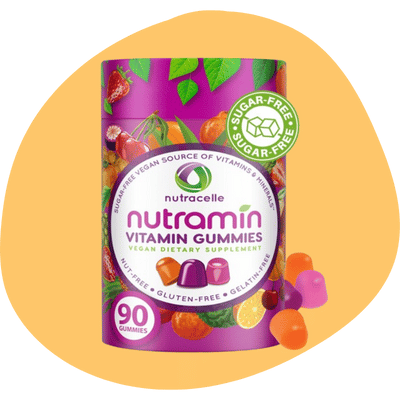
Support your health with NUTRAMIN Daily Vegan Keto Multivitamin Gummies! These plant-based, sugar-free gummies are packed with essential nutrients like Vitamin C, D, Zinc, Biotin, and Vitamins A, B6, and B12 for immunity, energy, and overall wellness. Non-GMO, nut-free, and gluten-free, they’re perfect for keto and vegan lifestyles. Stay healthy the delicious way!

2. Omega-3 Fatty Acids
Omega-3s are essential fatty acids that support heart health, brain function, and inflammation control. While fish is the primary source for most people, vegetarians can opt for plant-based options.
Why You Need It:
- Reduces inflammation, especially after workouts.
- Enhances brain and heart health.
How to Take It:
- Choose algae-based omega-3 supplements containing EPA and DHA.
- Daily dosage: 250-500 milligrams of combined EPA and DHA.
- Sources: Flaxseeds, chia seeds, walnuts (though these only provide ALA, a precursor to omega-3s).

Support your heart, brain, and joint health with Triple Strength Omega 3 Fish Oil 3600 mg! Sourced from premium wild-caught fish, this burpless formula delivers over 2100mg of Omega-3 fatty acids, including 1300mg EPA and 860mg DHA, for maximum wellness benefits. Experience the power of essential fatty acids for inflammation support, cognitive function, and overall vitality.

3. Iron
Iron is crucial for transporting oxygen in the blood and supporting energy levels. Vegetarians often rely on non-heme iron from plant sources, which is less easily absorbed than heme iron from animal products.
Why You Need It:
- Prevents fatigue and anemia.
- Enhances oxygen delivery during workouts.
How to Take It:
- Pair iron supplements with vitamin C to enhance absorption.
- Daily dosage: 8-18 milligrams for adults (higher for menstruating women).
- Sources: Spinach, lentils, tofu, fortified cereals.
Pro Tip: Avoid consuming iron with calcium-rich foods or coffee/tea, as they can inhibit absorption.
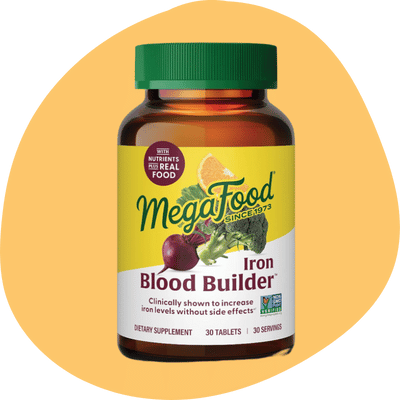
Boost your energy and support healthy iron levels with MegaFood Blood Builder, a vegan iron supplement clinically proven to increase iron levels without causing side effects. Packed with Vitamin C, Vitamin B12, and folic acid, it’s specially designed for women to promote energy, red blood cell production, and overall wellness. Perfect for gentle, effective iron support!

4. Protein Powder
For vegetarians on a low-carb diet, meeting protein requirements can be tricky, especially if you’re active and need more to support muscle repair and growth. Protein powders are an easy and efficient solution.
Why You Need It:
- Builds and repairs muscle tissue post-workout.
- Provides a quick, low-carb protein boost.
How to Take It:
- Opt for plant-based protein powders made from pea, hemp, or rice protein.
- Add a scoop to smoothies, oatmeal, or baked goods.
- Target intake: 20-30 grams of protein per serving post-workout.
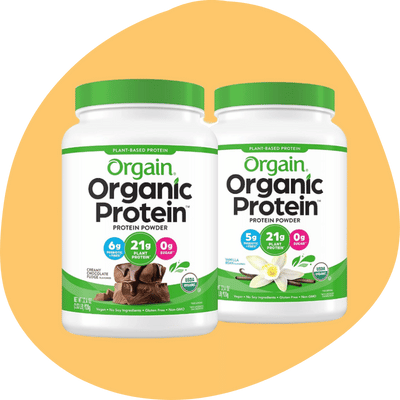
Fuel your day with Orgain Organic Vegan Protein Powder, offering 21g of plant-based protein per serving in delicious Vanilla Bean and Chocolate Fudge flavors. Made with organic ingredients, it’s perfect for smoothies, post-workout recovery, or as a meal replacement. Enjoy clean, vegan protein without any artificial flavors or preservatives!

5. Magnesium
Magnesium is essential for muscle relaxation, nerve function, and energy production. It’s also known to help with sleep quality and recovery, making it a must-have for anyone leading an active lifestyle.
Why You Need It:
Reduces muscle cramps and soreness.
Promotes better sleep and stress relief.
How to Take It:
- Look for magnesium citrate or magnesium glycinate for better absorption.
- Daily dosage: 310-420 milligrams for adults.
- Sources: Pumpkin seeds, spinach, almonds, and dark chocolate.
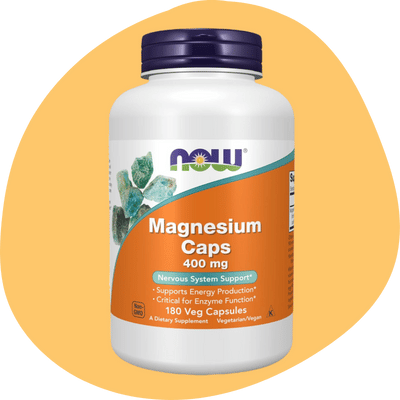
Support your body with NOW Foods Magnesium 400 mg, a high-quality supplement designed to promote enzyme function and a healthy nervous system.* With 180 vegetarian capsules, it’s an excellent choice for daily magnesium support. Perfect for maintaining overall wellness and balanced bodily functions!

6. Vitamin D
Vitamin D plays a vital role in bone health, immune function, and mood regulation. While sunlight is the best source, many people (especially vegetarians) don’t get enough from their diet or environment.
Why You Need It:
- Boosts calcium absorption for stronger bones.
- Enhances immunity and energy levels.
How to Take It:
- Choose vitamin D3 (plant-based versions derived from lichen are available).
- Daily dosage: 600-2,000 IU, depending on deficiency levels.
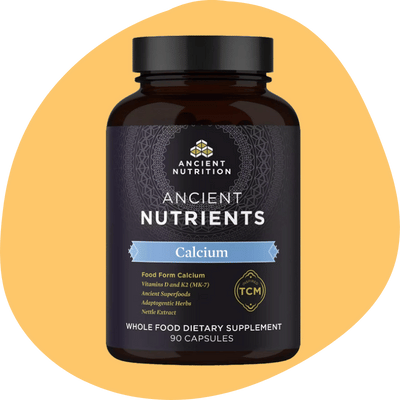
Strengthen your bones and boost your wellness with Ancient Nutrition Calcium Supplement. Enriched with Vitamin D and K2, it supports bone health, immune function, and muscle recovery. Paleo and keto-friendly, this 90-count supplement is a perfect addition to a healthy lifestyle for overall vitality.

7. Zinc
Zinc is an essential mineral that supports immune function, wound healing, and muscle recovery. Plant-based diets often lack bioavailable zinc, so supplementation can help.
Why You Need It:
- Enhances recovery and reduces inflammation after workouts.
- Supports immune health and metabolism.
How to Take It:
- Daily dosage: 8-11 milligrams for adults.
- Sources: Pumpkin seeds, chickpeas, and cashews.
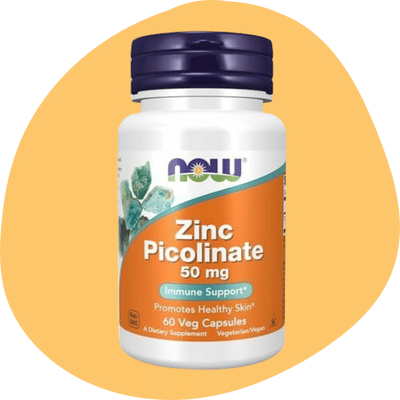
Boost your immunity and enzyme function with NOW Zinc Picolinate 50 mg. This high-absorption formula supports immune health and overall wellness.* Each pack includes 60 vegetarian capsules (2 packs), making it a convenient and effective addition to your daily routine.

8. Creatine (Optional)
Creatine is a well-researched supplement that enhances performance in high-intensity workouts. While it’s most commonly found in meat, vegetarians can benefit from plant-based creatine supplements.
Why You Need It:
- Improves strength, power, and endurance.
- Increases muscle recovery and growth.
How to Take It:
- Daily dosage: 3-5 grams of creatine monohydrate.
- Mix with water or a post-workout shake.

Enhance your workouts with Jacked Factory Creatine Monohydrate Powder. Designed to support muscle growth, increase strength, boost energy output, and improve athletic performance, this unflavored supplement offers 30 servings of pure creatine. Perfect for athletes and fitness enthusiasts looking to maximize results!

Tips for Choosing High-Quality Supplements
- Opt for Vegetarian or Vegan Options:
- Look for supplements clearly labeled as plant-based to avoid animal-derived ingredients like gelatin.
- Look for supplements clearly labeled as plant-based to avoid animal-derived ingredients like gelatin.
- Check for Additives:
- Avoid products with unnecessary fillers, sugars, or artificial ingredients.
- Avoid products with unnecessary fillers, sugars, or artificial ingredients.
- Choose Third-Party Tested Brands:
- Select supplements verified by independent organizations like NSF or USP to ensure quality and safety.
- Select supplements verified by independent organizations like NSF or USP to ensure quality and safety.
- Consult a Doctor or Dietitian:
- Before starting any supplement, it’s wise to get a blood test to identify deficiencies and consult a professional for guidance.
Common Mistakes to Avoid
Even with the best intentions, it’s easy to make mistakes when following a low carb vegetarian diet.
Top Mistakes:
- Over-restricting carbs: Too few carbs can leave you feeling drained and fatigued.
- Ignoring protein diversity: Relying too much on one protein source limits your nutrient intake.
- Skipping healthy fats: Remember, fats are essential for energy on a low-carb plan.
- Neglecting hydration: Dehydration can derail both performance and recovery.
Frequently Asked Questions (FAQs)
How can I get enough protein on a low-carb vegetarian diet?
Focus on foods like tofu, tempeh, and nuts. Incorporate protein-rich veggies like spinach and broccoli.
Will a low-carb diet affect my workout performance?
If balanced properly, it shouldn’t. Stick to nutrient-dense foods to maintain energy levels.
What are quick snack options for low-carb vegetarians?
Try celery sticks with almond butter, roasted chickpeas, or hard-boiled eggs (if you eat them).
Can I build muscle on a low-carb vegetarian diet?
Absolutely! Ensure you’re getting enough protein and healthy fats to support muscle growth.
How do I handle cravings for high-carb foods?
Experiment with low-carb substitutes, like zucchini noodles or cauliflower pizza crust.
The Bottom Line
A low carb vegetarian diet is an excellent way to fuel your workouts and stay energized. By focusing on nutrient-dense foods, balancing macros, and planning, you can crush your fitness goals while sticking to a plant-based lifestyle. Remember, it’s all about personalization—listen to your body and adjust your diet as needed.



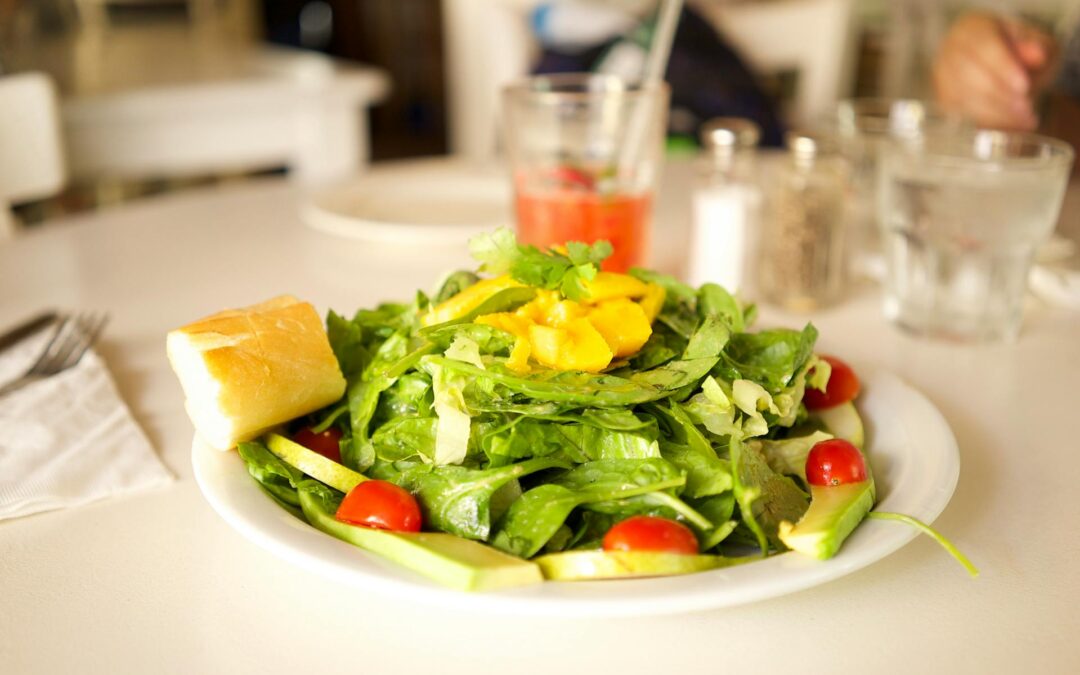
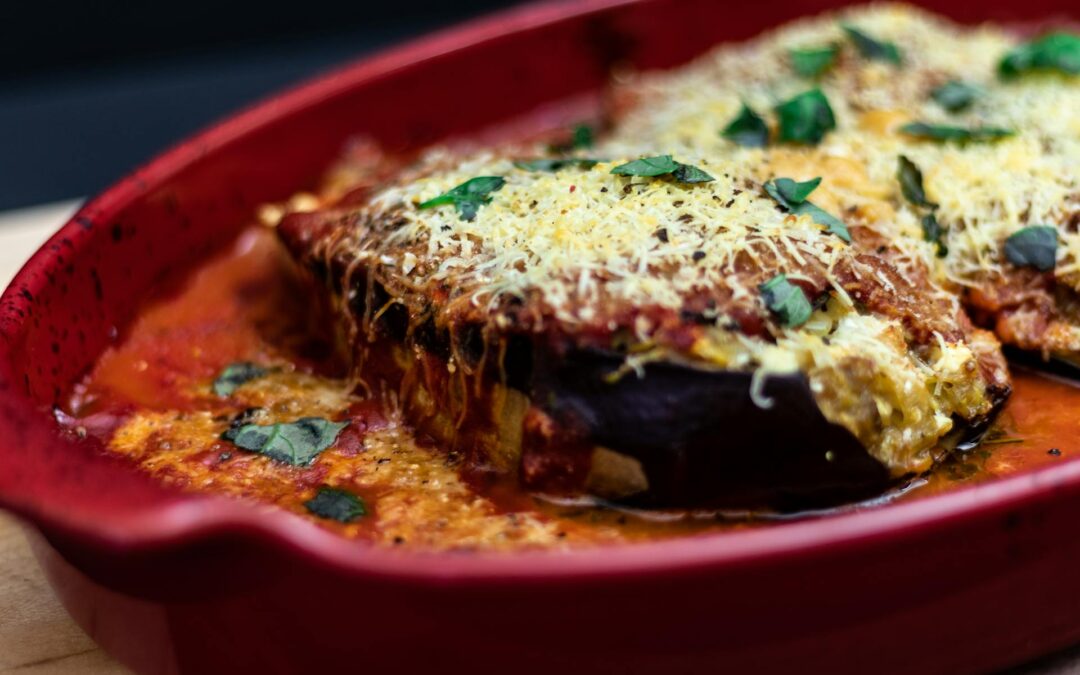
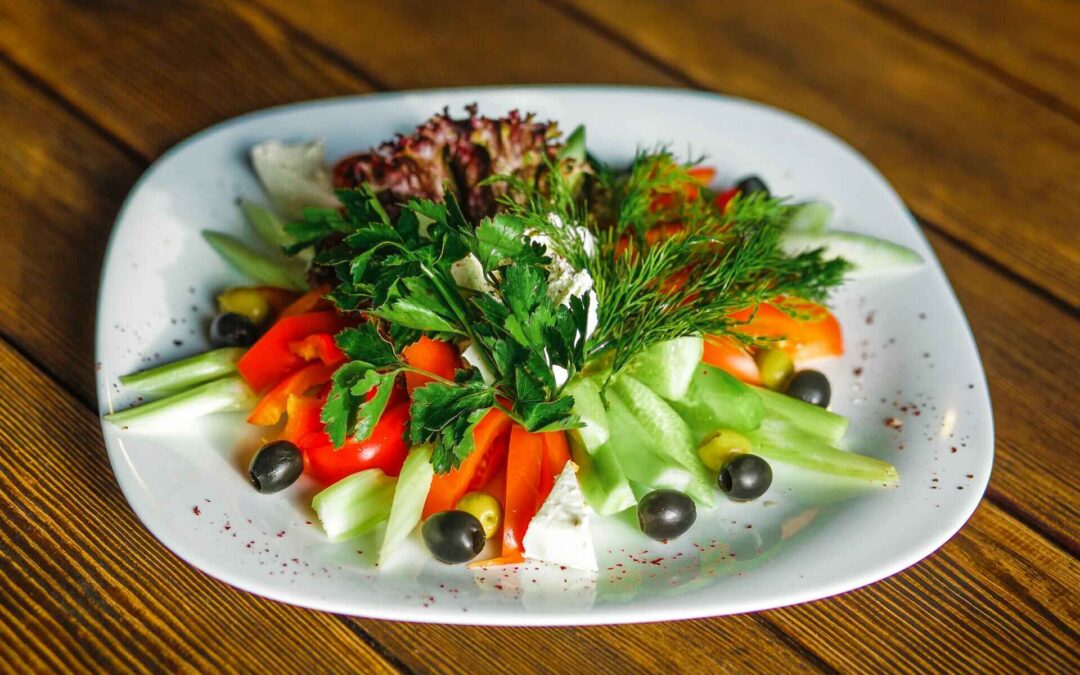
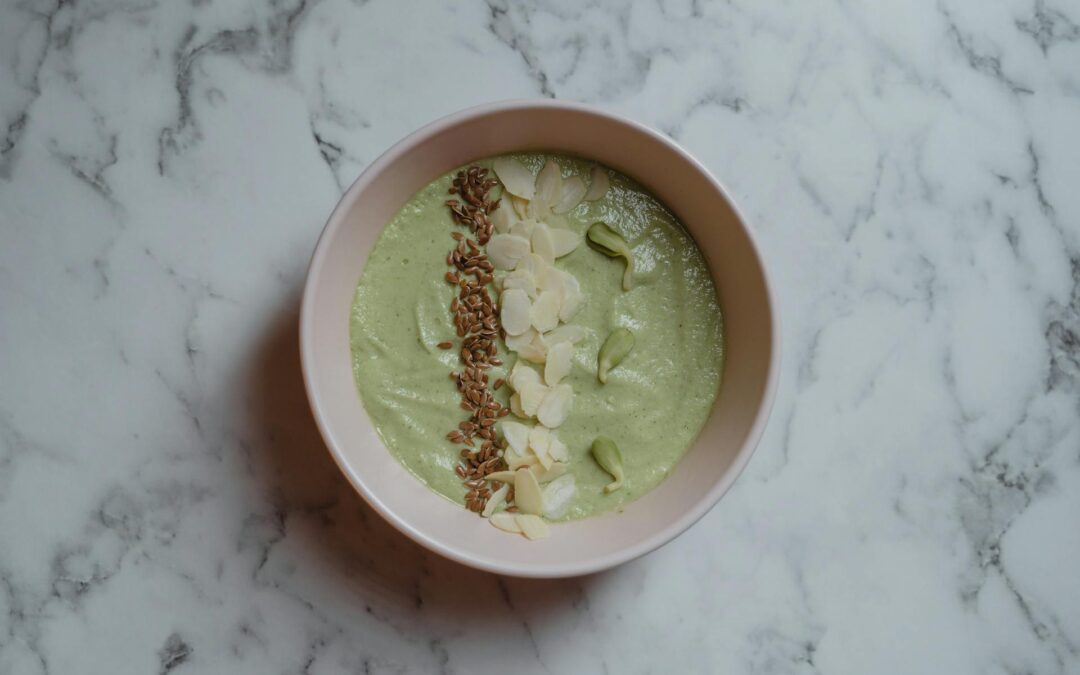
0 Comments